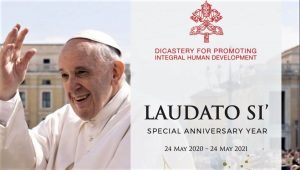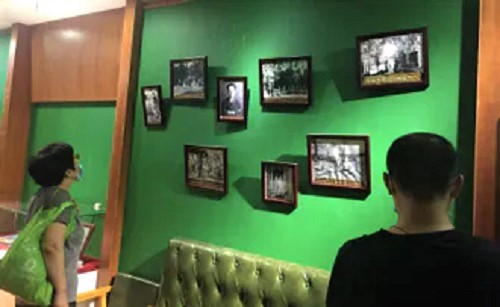A weekend notification from the office responsible for the control of the coronavirus pandemic in Wuhan has indicated that new measures are being introduced to counteract the threat of the Delta variant.
People from outside the province are being told to avoid travel to this region. However, there is no indication that life is returning to the level of restriction that took place early last year.
The emergence of the Delta variant in a few areas of China is causing anxiety. A second wave has not happened here. If it were to emerge, it could cause serious problems due to many people not having received the vaccine, a situation complicated by questions about the effectiveness of the locally produced vaccines.
With the emerging news of possible travel restrictions, I was relieved to have returned from Beijing to Wuhan last week. Every seat on the train was occupied. However, last week the main disruption to travel from Beijing to Wuhan was the recent devastating flooding in Zhengzhou, a massive travel hub at the halfway point between the capital and here.
The focus of attention in China has now moved quickly from the tragic flooding to the Delta variant.
The early days of that recent visit to Beijing seem to be located a long time in the past due to what is now unfolding. In those calmer days, an interesting experience I had was the opportunity to bring a group of Chinese priests and sisters to visit the Paleozoological Museum of China which is located near Beijing Zoo.
The museum is a prime location for the display of vertebrate fossils, also reflecting the huge advances made over the past century in fossil research in China. Impressive dinosaur fossils are well supplemented by other fossils that focus on the developmental history of a wide range of creatures that had backbones.
From previous experience I was aware that a visit to the staff meeting room might be of interest to my companions. An encouraging conversation with a member of staff eventually led to the possibility of that door being opened.
 The meeting room is a place where the life of Yang Zhong Jian is recalled with photographs and written descriptions. Known in some parts of the world as CC Young, here he is affectionately given the title ‘Father of Chinese Vertebrate Paleontology’.
The meeting room is a place where the life of Yang Zhong Jian is recalled with photographs and written descriptions. Known in some parts of the world as CC Young, here he is affectionately given the title ‘Father of Chinese Vertebrate Paleontology’.
In this meeting room a unique overlap with the life of the Church is to be seen. A number of group photographs show a youthful Yang Zhong Jian and the Jesuit priest, paleontologist and theologian Teilhard de Chardin, his Chinese name De Ri Jin appearing in the lists of names accompanying the photographs.
Telihard de Chardin came to China in 1923. Prior to coming to China he had studied science in France and was later involved in paleontological research. A painful exception to that academic involvement saw him take up the duties of a stretcher bearer in World War I, the horrors he witnessed posing deep questions for him about the meaning of life.
From his arrival in China to the time of his departure 23 years later, Teilhard took part in many paleontological expeditions to distant areas of the country. He also worked with fellow Jesuit priest Émile Licent, a natural historian and paleontologist.
Teilhard’s conclusions often stirred controversy as he used emerging knowledge from a deep-time history of the natural world to propose new theological insights. In China his contribution to paleontology is still widely recognised. It is also interesting that he is the only modern theologian quoted by Pope Francis in his 2015 encyclical Laudato Si’.
The vast stretches of time associated with a paleontological museum in Beijing are in stark contrast to the pace of change in the news over the past two weeks in China.
The possibility of a second wave of infection is the focus of attention here this week. Perhaps the early life experience of Teilhard de Chardin as a stretcher bearer can offer us some hope.
In a situation of war, he was close to people who suffered deep trauma. However, as a person of faith he eventually had the opportunity to understand God’s presence in the world over vast expanses of time.
In a country where the focus of news has just moved so quickly from one challenge to another, perhaps a longer view of time is also needed, one that can allow God more space to gradually bring consolation to all who are suffering.
Courtesy: Independent Catholic News – https://www.indcatholicnews.com

